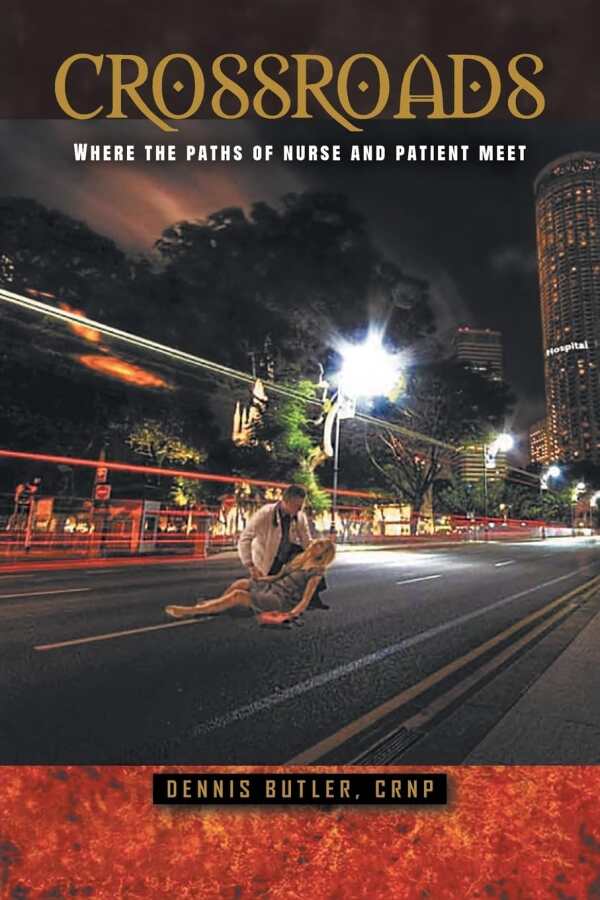Crossroads
Where the Paths of Nurse and Patient Meet
Finding spiritual and personal meaning in the work of being a nurse, Crossroads is a revealing memoir.
Dennis Butler’s memoir Crossroads is an illuminating look into what the nursing profession entails.
The book is split into three parts, each corresponding to a particular phase of Butler’s career: the time he spent as a psychiatric nurse, working in the ICU, and as a nurse practitioner. Each chapter includes an overview of daily experiences and notable cases. Hinting at coming events and finding throughlines in breakthroughs and complications, the chapters flow together well. Although they sometimes delve into medical technicalities, the personal approach takes precedence most of the time, focusing on the people involved in Butler’s work over the specifics of medical procedures. For example, a psychiatric patient, Bob, is recalled for having attempted suicide. After being committed, his intensive therapy led to several breakthroughs, bringing light to his childhood traumas. In looking back on such cases, the book builds upon single, evocative details, such as a person’s hand in a surfacing memory, with skill.
There’s a sensual, attentive quality to the prose, whose descriptions of medical procedures, typical rooms within each specialty, scents, and noises are thorough and precise: An open-heart surgery recovery unit, for example, is described as a long open room, with six or so beds on each side. And those who left a mark on Butler’s life are also fleshed out well. For example, the larger-than-life Doctor G, a neurologist Butler worked for, is recalled in both physical and emotional terms.
At other times, though, the prose becomes quite sensationalist, going too far afield of the book’s ostensible career focus, as with the story of being asked to kiss a patient on the cheek; said patient is deemed too unattractive to kiss, and the impropriety of the situation is glossed over. Elsewhere, a patient who is said to have developed a crush on Butler is mocked for being “painfully unattractive.” Such moments are also at jarring odds with the book’s treatment of nursing as a spiritual practice, such as where its chapters end with succinct prayers conveying gratitude and faith. Indeed, the book itself ends with a prayer following a summary of Butler’s career and the suggestion that all of his working experiences served an ultimate purpose, even when those purposes weren’t obvious at the time.
Crossroads is a joyful and revealing memoir about the emotional rewards of being a professional nurse.
Reviewed by
Carolina Ciucci
Disclosure: This article is not an endorsement, but a review. The publisher of this book provided free copies of the book and paid a small fee to have their book reviewed by a professional reviewer. Foreword Reviews and Clarion Reviews make no guarantee that the publisher will receive a positive review. Foreword Magazine, Inc. is disclosing this in accordance with the Federal Trade Commission’s 16 CFR, Part 255.

